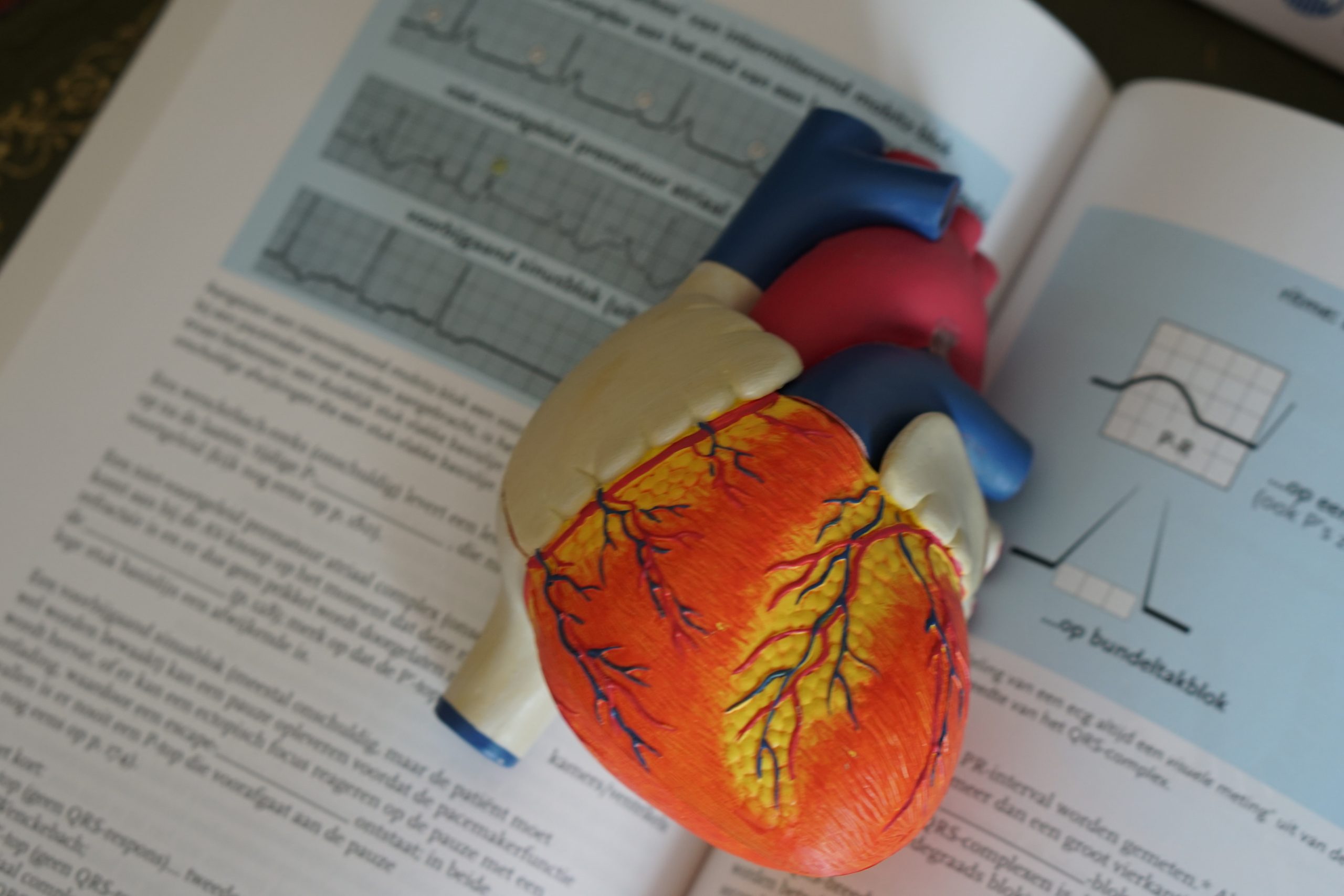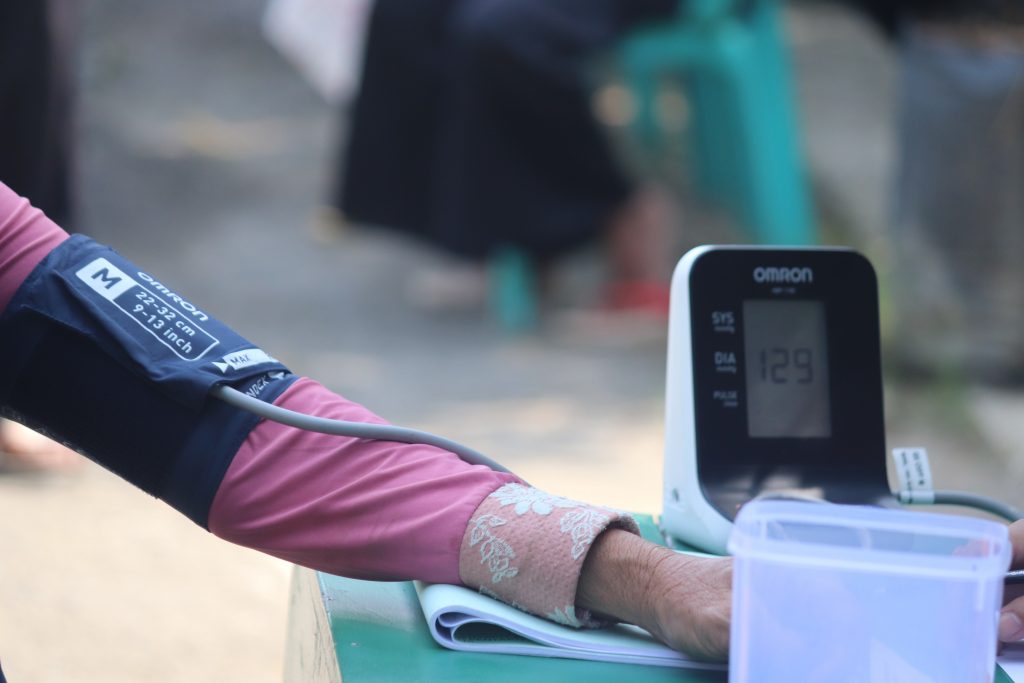
Hypertension and Blood Pressure awareness (American Heart Month)
February has come, and that means it’s American Heart Month! This month is all about learning about your heart health and what you can do to improve and manage it.
Heart health is something to take seriously, and one thing that can have a huge impact on your health is hypertension. Hypertension is a serious condition that can have dire effects on your heart if left untreated.
What Is Hypertension?
Hypertension simply means having high blood pressure where the force on your artery walls is higher than normal, causing damage to your cardiovascular system. Blood pressure is the measurement of the pressure or force of blood pushing against blood vessel walls. It’s measured by the amount of blood your heart pumps and the overall resistance to blood flow in your arteries.
A blood pressure reading has two numbers. The first is called systolic pressure, which is the top number in a blood pressure reading. This is a measurement of the pressure within your arteries when your heart beats. The bottom number, diastolic pressure, is the measurement of pressure in between heartbeats. For example, having a systolic reading of under 120 and a diastolic reading of under 80 would be the ideal blood pressure.
Anything above a 120/80 reading can be on track to becoming hypertensive and is something to talk to a doctor about. Being diagnosed as hypertensive means having a blood pressure reading of 130/80 or higher.

What Are the Signs and Symptoms of Hypertension?
Unfortunately, there typically aren’t really any clear symptoms or signs of hypertension. Often, the only way to know that you’re hypertensive is by getting your blood pressure checked and being diagnosed by a doctor. That said, you can also check your blood pressure on your own with a blood pressure reader. Having your blood pressure checked regularly will help you keep an eye on any changes that could end up being life-threatening.
While there are some cases of hypertension where symptoms can show up, these tend to be more severe cases known as “hypertensive crises.” In these cases, you may experience headaches, nosebleeds, and even strokes.
It’s important to seek medical help if you experience any symptoms of a hypertensive crisis.
Some other high blood pressure symptoms are more indirect but include things such as:
- Facial flushing — This can occur when your blood pressure is higher than normal.
- Blood spots in your eyes — While this condition is common in people with high blood pressure or diabetes, these conditions are not the cause of high blood pressure.
- Dizziness — Dizziness can be a side effect of blood pressure medication and not something directly caused by having high blood pressure. Don’t ignore dizziness, though, especially if it’s sudden, as it can be an indication of a stroke.
What Causes Hypertension?
Generally speaking, you are more likely to experience high blood pressure if you:
- Have a family history of hypertension, diabetes, or cardiovascular disease
- Are 55 years of age or older
- Drink alcohol regularly
- Don’t exercise enough or at all
- Are overweight
- Have a diet high in fat or sodium
- Are a regular or heavy smoker

How to Manage Hypertension?
Managing hypertension is all about lifestyle changes. The causes of high blood pressure are quite clear, and avoiding a potentially dangerous case means taking action in your life to make sure that your blood pressure won’t affect or derail your heart health.
Once you have been diagnosed with hypertension, your doctor will likely recommend changing your lifestyle. These changes can help you control and manage your condition. These changes can also be difficult, but your health matters more than anything else.
Some lifestyle changes include:
- Getting to a healthy weight if you’re overweight or obese
- Limiting your alcohol intake or cutting out alcohol altogether
- Starting a fitness routine or just getting more exercise in general
- Eating a healthy and well-rounded diet including less sodium and less fat
These lifestyle changes might ultimately not be enough, in which case your doctor will recommend medication to lower and manage your blood pressure.
Managing Hypertension in the Workplace
Having hypertension in the workplace can be tricky to navigate, and management will all come down to switching up your routine.
If you’re on medication, you’ll want to be sure you’ve packed it so you can take it as needed during your workday. If your medication causes you to experience any drowsiness or other side effects that can affect your work, talk to your doctor.
If you have a job that requires long periods of sitting down, be sure to get up every half an hour or so for a short stretch and walk. Be sure to drink plenty of water and pack yourself a healthy and hearty lunch. If your workplace offers lunch, including healthy options, even better!
Managing Hypertension While Traveling
If you’re an avid traveler, you may want to consult your doctor before you jet off on your next adventure. Depending on the severity of your hypertension, traveling might not be the best idea.
If you’re cleared for take-off, be sure to pack your own food, as most airlines and other methods of public transport tend to offer high-fat and high-sodium foods. You’ll also want to be sure you’ve packed any blood pressure medication to be accessible during your travels. As always, be sure to drink plenty of water.
How can MyLifeWell help?
MyLifeWell is here to help you Live Well, Travel Well, and Shop Well. At MyLifeWell, we are all about giving you the tools and resources you need to live your life healthily. When it comes to hypertension, we can help guide you on your heart health journey. The MyLifeWell app can help you keep track of your daily activities, like exercise and diet. We can help you determine what foods are the healthiest for you. We can even help you manage your stress, thereby decreasing your blood pressure little by little. When it comes to your health and wellness, there’s no shortage of positive changes MyLifeWell can bring to your life.

